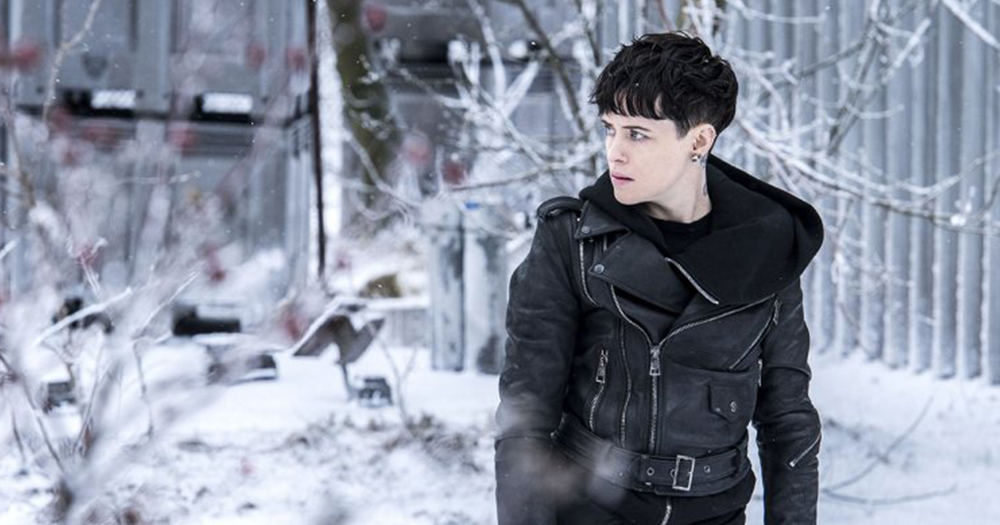Fede Álvarez’s The Girl in the Spider’s Web follows the comeback of vigilante hacker Lisbeth Salander (Claire Foy) in a sequel to David Fincher’s The Girl with the Dragon Tattoo. The film, which is based on David Lagercrantz’s novel sees the return of Steig Larsson’s now canonical characters – Lisbeth and Mikael Blomkvist (Sverrir Gudnason) as they scramble to get their hands on a deadly nuclear weapons programme.
Álvarez’s film endeavours to balance Lisbeth’s origin story and her relationship with her villainous sister (Sylvia Hoeks) with a larger than life action-packed plot, but fails in delivering either to its full potential.
Steven Knight’s script veers away from the gratuitous violence and prolonged torture sequences of The Girl with the Dragon Tattoo, as the writer puts sentimentality at the centre of the film. The film’s subplot – the fate of August (Christopher Convery), a genius young boy – only serves to dilute the thrill of threat that has become synonymous with the Millenium franchise.
Similarly, the contrived peril surrounding young August softens Lisbeth’s frightening and admirable edge. There is no denying the endless talent of Clare Foy, but this script undermines the heroine’s character. Foy’s Lisbeth is less concerned with the punishment of awful men who do unspeakable things to women, a distinct departure from the hardened Lisbeth of Larsson’s novels.
Similarly, the talents of LaKeith Stanfield (Selma, Get Out) are underused as the film’s screenplay becomes more of a showcase of car-chases and explosions, with character development taking a back seat.
That is not to say that the film’s crux is without intrigue. The threat of the antagonistic Spiders, though never fully realised, looms throughout The Girl in The Spider’s Web creating adequate tension. Additionally Pedro Luque’s cinematography is captivating, as the vast and dreamy Swedish landscape locks the viewer’s gaze in a trance-like state.
Ultimately, while beautiful and action-packed, The Girl in the Spider’s Web fails to reach any sort of climax as the charm and grit of Lisbeth is dulled in favour of contrived sentimentality.
© 2018 GCN (Gay Community News). All rights reserved.
Support GCN
GCN is a free, vital resource for Ireland’s LGBTQ+ community since 1988.
GCN is a trading name of National LGBT Federation CLG, a registered charity - Charity Number: 20034580.
GCN relies on the generous support of the community and allies to sustain the crucial work that we do. Producing GCN is costly, and, in an industry which has been hugely impacted by rising costs, we need your support to help sustain and grow this vital resource.
Supporting GCN for as little as €1.99 per month will help us continue our work as Ireland’s free, independent LGBTQ+ media.

